Preface
Goal: Simple macro to diff two similar spreadsheets.
This time, using LibreOffice, instead of openpyxl.
Constraint: in the same workbook.
Why Diff?
Tracking Changes
How do you catch up with the latest update from your team?
You can read the long why here:
How to Track?
Brute force compare, then coloring.
Consider the input. These required two sheets: First sheet, and then the Second sheets. Both on the same workbook.
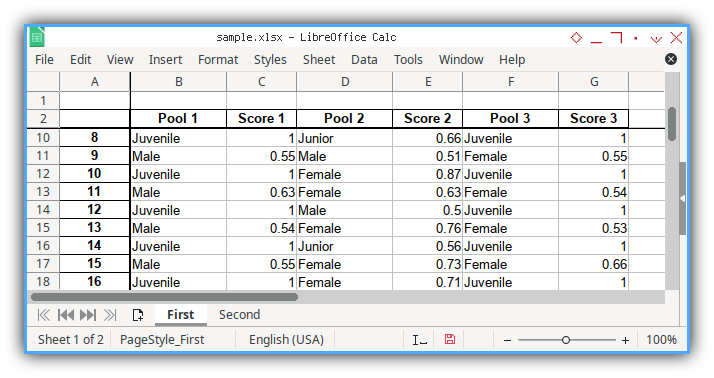
Then, where is wally?
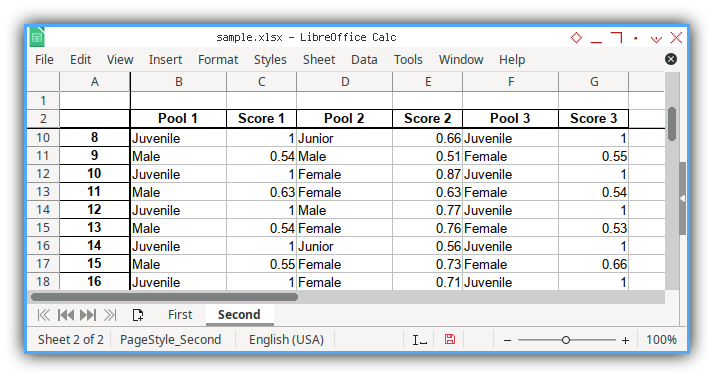
Both are pretty similar, but if you look closer there are differences. As shown in output below:
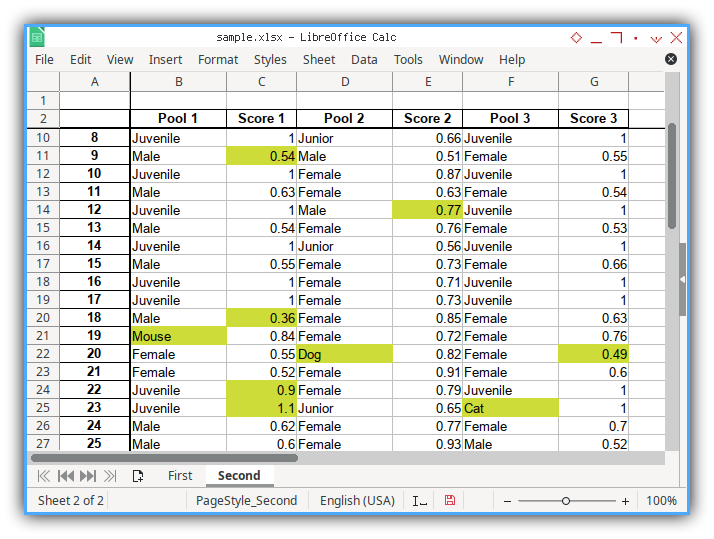
The figure above is a simplification of real data.
Example Data
You can download here
Why Automation?
Time savings.
It is pretty much easier than doing manually.
Shortly, we should invest on thinking, rather than doing tedious repetitive task.
Diff Code
Enough with introduction. Let’s get into the code.
There is only consist one short file required.
Skeleton
I’m using class.
# coding: utf-8
from __future__ import unicode_literals
class SheetDiff:
def __init__(self, ...):
...
def compare(self, cell_fst, cell_snd):
...
def diff(self):
for col in self.columns:
for row in self.rows:
...
def main():
sample = SheetDiff(...)
sample.diff()Very simple, it only have one method diff, beside the constructor.
Import Header
Since this using library library,
we commonly declare this at the top.
# coding: utf-8
from __future__ import unicode_literals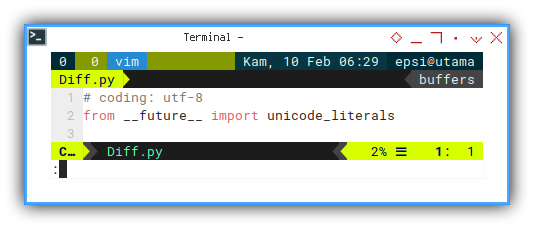
Constructor
The constructor is also simple.
def __init__(self, sheet_fst,
sheet_snd, cols, rows):This will be called in main later, for example as below:
sample = SheetDiff(
'First', 'Second',
r_columns, r_rows)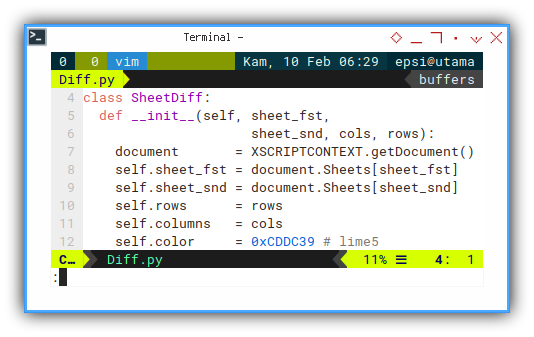
Consider go back to our constructor, it is initialize a few stuff, such as open both sheet.
document = XSCRIPTCONTEXT.getDocument()
self.sheet_fst = document.Sheets[sheet_fst]
self.sheet_snd = document.Sheets[sheet_snd]And also keep other variable as well, bundled as class properties.
self.rows = rows
self.columns = colsAt last, add some constant, that will be used throught out the loop later.
self.color = 0xCDDC39 # lime5The Diff Method
This double loop compare all. And finally save the result to new spreadsheet.
def diff(self):
for col in self.columns:
for row in self.rows:
cell_fst = self.sheet_fst \
.getCellByPosition(col, row)
cell_snd = self.sheet_snd \
.getCellByPosition(col, row)
self.compare(cell_fst, cell_snd)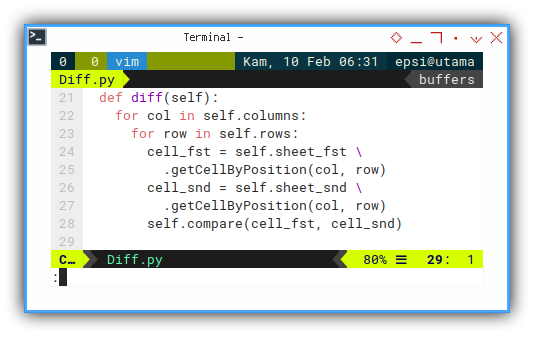
The detail horseworks comes in compare method.
The Compare Method
the compare method is just this code
def compare(self, cell_fst, cell_snd):
if (cell_fst.String != cell_snd.String):
print(f'{cell_snd.AbsoluteName:16} : '
f'{cell_fst.String:8} -> '
f'{cell_snd.String:8}')
cell_snd.CellBackColor = self.color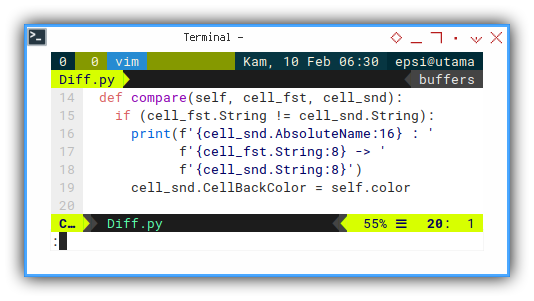
If the value is different for both sheet, there are two actions that will be taken:
- Print in terminal.
- Color the cell, so we can see the difference.
Main
Program entry Point
This is also only consist one file
def main():
r_columns = range(0, 8)
r_rows = range(0, 42)
sample = SheetDiff(
'First', 'Second',
r_columns, r_rows)
sample.diff()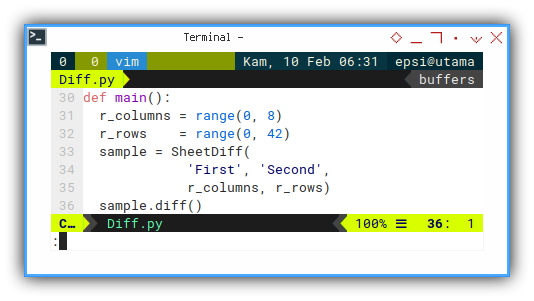
With the result similar as below:
APSO python console [LibreOffice]
3.10.2 (main, Jan 15 2022, 21:33:02) [GCC 11.1.0]
Type "help", "copyright", "credits" or "license" for more information.
>>> main()
$Second.$B$21 : Female -> Mouse
$Second.$C$11 : 0.55 -> 0.54
$Second.$C$20 : 0.57 -> 0.36
$Second.$C$24 : 1 -> 0.9
$Second.$C$25 : 1 -> 1.1
$Second.$D$7 : Female -> Male
$Second.$D$22 : Female -> Dog
$Second.$E$14 : 0.5 -> 0.77
$Second.$F$25 : Juvenile -> Cat
$Second.$G$22 : 0.66 -> 0.49
$Second.$G$42 : 0.38 -> 0.58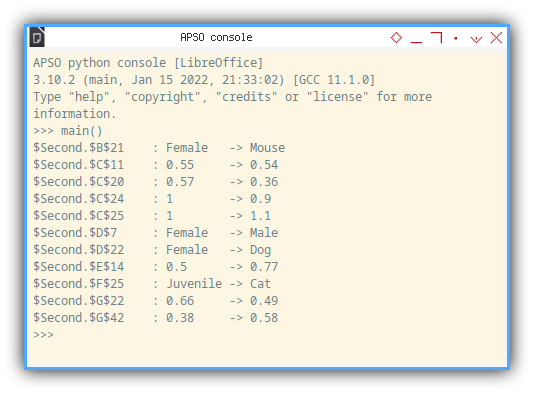
The Result
Finally we have peace, with complete coloring.

Now you can continue with your own further processing.
What is Next 🤔?
Consider continue reading [ LibreOffice - Decoration Example ].